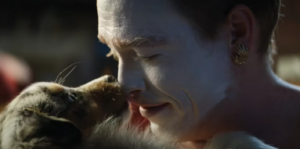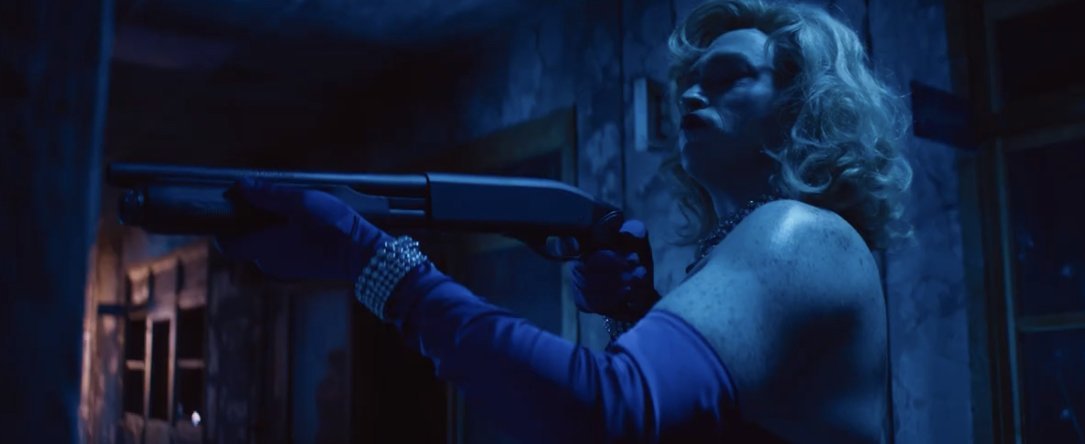by Anushree Ghosh
100s of canines listen to Doug reciting Shakespeare from “Romeo & Juliet” – their ears are straightened up, sitting uptight – all ears to the man who loves them as their babies. “Dogman” has many such scenes where Douglas Munrow, played by Caleb Landry Jones just insinuates what he wants, and his dogs act in a jiffy.
The story is about a troubled soul seeking refuge in the company of dogs. But the narrative goes beyond showing the bond between humans and dogs, it is poetry on life’s sorrow. The first part is mostly about Doug’s troubled childhood and his abusive father. When restrained inside the premises of a kennel, Doug finds solace in interacting with the dogs. Leaving the premises caused him to be wheelchair bound where walking more than a few steps was to be life-threatening.
The second part is an eclectic mix of Doug finding his skills as an actor, and singer, and constant struggle to find work to support his dogs. Doug’s poetic life bleeds colour, turbulent emotions and resilience in the face of adversity. The scenes where Douglas’ gender-fluid personality embraces make-up in a dulcet voice are crafted in beautiful colours, almost mimicking the intense contrasting colours of life.
The whole film unfolds in an interview by a psychologist named Evelyn (Jojo T. Gibbs) appointed by the state to talk to the man dressed like Marilyn Monroe, unusually calm about the arrest made from a gothic scene with umpteen dead bodies scattered around an abandoned building.

There are a few stray elements that may not sit well with the storyline – Doug’s mother’s departure without any effort to help her entrapped son, and the entire heist sequence carried out by the dogs where they were aware of the layout of the house, an easy way out for Doug to break prison lock. The biggest riddle while watching the film arises from the sequences where dogs are telepathically aligned with Doug and do as tell – mostly not even in words.
However, if we consider all the cinematic liberty one can have while creating a movie – Dogman has a tight screenplay that binds you to the screen with great colours, frames, background music and sharply enacted scenes. These elements along with an immaculate performance by Caleb Landry Jones fuel every scene with a sense of raw intensity and emotional depth that captures your attention fully.
The end scene that portrays Christ-like suffering for Doug surrounded by the dogs is a reminder of all the suffering that a man goes through to truly be transformed or resurrected as something else – the journey of a broken self to mend the mind and body by creating ruses that fit the maze called ‘world’.








+ There are no comments
Add yours